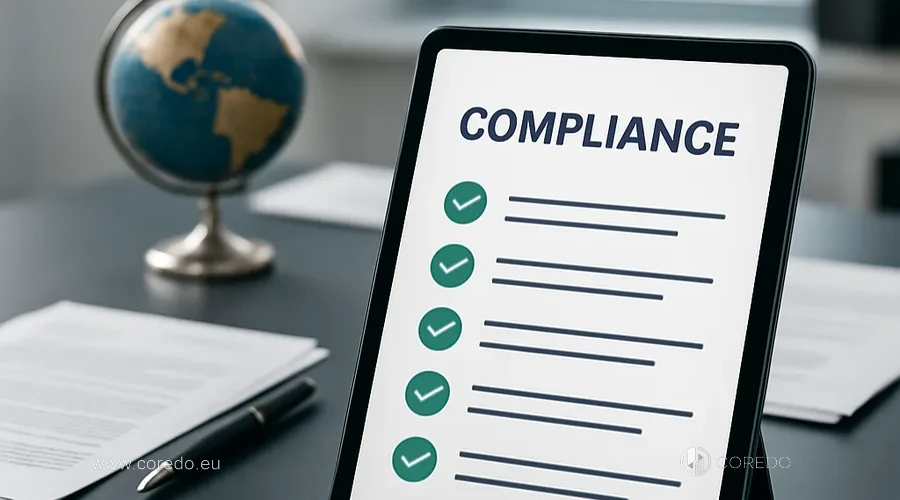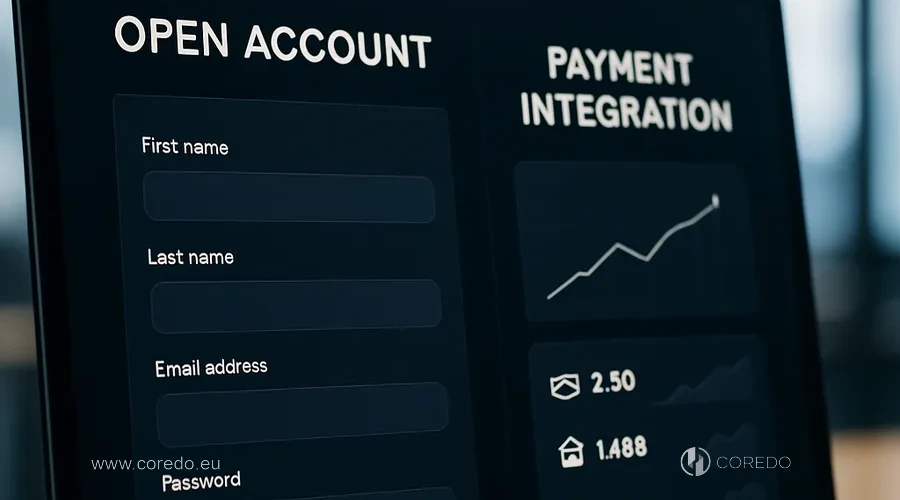Imagine you’re ready to launch your fintech startup and are choosing among dozens of jurisdictions. Singapore is consistently in the top three destinations for international expansion, but the registration process can seem like a confusing maze of requirements and timelines. In fact, it’s one of the most transparent and fastest processes in the world: most companies get registered within 15 minutes to 3 days. However, between choosing a name and receiving the certificate lie many critical decisions that will determine the success of your business in the Asian market.
In this guide I will share the practical experience of the COREDO team, which in recent years has helped dozens of entrepreneurs from Europe, Asia and the CIS successfully register companies in Singapore and scale their operations. We will cover not only administrative procedures but also strategic aspects that novice entrepreneurs often overlook.
Singapore: Why It Attracts Business

Singapore holds a special place in the global business ecosystem. It is not just a low-tax jurisdiction; it is a strategic hub for accessing Asian markets, attracting investment, and building a global operations base.
Key advantages of Singapore for businesses:
- First, speed and ease of registration. The BizFile+ platform allows you to apply online, and in most cases approval comes within a few days. The minimum share capital is only 1 Singapore dollar (SGD), which makes market entry accessible even for early-stage startups.
- Second, 100% foreign ownership. Unlike many Asian countries, in Singapore foreigners can fully own a company without a requirement for a local partner. This is critically important for European and American entrepreneurs who want to retain full control over their business.
- Third, an attractive tax system. Corporate tax is 17%, but there are numerous incentives for startups, innovative companies, and companies operating in certain sectors. In addition, Singapore offers grant and subsidy programs for R&D and innovation.
- Fourth, a high level of corporate transparency and protection of rights. Regulation is carried out by ACRA (Accounting and Corporate Regulatory Authority), which is known for its professionalism and fairness. This creates trust among investors and partners.
Choosing the Right Business Structure

Before filing documents with ACRA, it is necessary to determine the optimal legal structure for your company. This decision affects taxation, liability, attracting investments and operational flexibility.
Main structure options:
- Private Limited Company (Pte Ltd): is the most preferred form for IT companies, fintech startups, and companies planning to attract investments. Pte Ltd provides limited liability (personal assets are protected), allows issuing shares and attracting investors, and has a clear management structure with directors and shareholders. COREDO’s practice confirms that more than 85% of our clients choose this form due to its versatility and investment appeal.
- Sole Proprietorship: is suitable for sole proprietors and micro-businesses. However, this form does not protect personal assets and does not allow attracting investors, so it is not recommended for serious businesses.
- Partnership: for companies founded by multiple partners. Requires a clear agreement between partners and carries the risk of personal liability.
- Limited Liability Partnership (LLP), a hybrid form combining elements of a company and a partnership. Suitable for professional services (consulting, legal services).
For most international entrepreneurs, especially those planning to scale and attract venture funding, Pte Ltd is the optimal choice.
How to register a company in Singapore?

The registration process consists of several clearly defined stages. Understanding each of them will help you avoid delays and mistakes.
Reserving a company name via BizFile+
The first step is to choose and reserve a company name. The name must be unique and comply with ACRA requirements.
Requirements for the name:
- Must be in English (or have an English translation)
- Must not contain words that require special permission (for example, “Bank”, “Insurance” without a license)
- Must not be similar to existing registered names
- Must end with “Pte Ltd” for a Private Limited Company
The reservation process is carried out through the online BizFile+ portal. The reservation fee is 15 SGD, and the name is reserved for 60 days. This gives you time to prepare the remaining documents.
Tip from COREDO: choose 3-5 alternative names in case your primary name is unavailable. This will save you time and avoid delays.
Appointment of key persons in the company
To register a company in Singapore, you need to appoint the following key persons:
- Director (Director), at least one director who must be a natural person (not a company). A director may be a foreigner, but it is recommended to have at least one Singapore resident director to simplify operations.
- Shareholder (Shareholder): at least one shareholder. A shareholder can be an individual or a company, resident or non-resident.
- Company Secretary (Company Secretary), must be appointed. The secretary may be a director, a shareholder or a third party. Many companies appoint professional corporate service providers as secretaries.
Personnel requirements:
- The director must be over 18 years old
- The director must not be bankrupt or have a criminal conviction
- Documents proving identity and address must be provided
Important change in 2025: from 16 June 2025 every company is required to maintain a register of registrable controllers (Beneficial Owners) immediately after incorporation, with no grace period. This requirement aims to increase transparency and combat money laundering.
Document preparation: Step 3
The document package for submission to ACRA includes:
- Company incorporation application, completed via BizFile+
- Memorandum and Articles of Association: defines the management structure and shareholders’ rights
- Registered office address of the company, must be a real address in Singapore (you can use an office, co-working space or a corporate service provider’s address)
- Documents proving the identity of directors and shareholders – passports, birth certificates
- Documents proving addresses – utility bills, bank statements
- Declaration of compliance – confirmation that all requirements have been met
The solution developed by COREDO includes the use of memorandum templates adapted for various types of businesses. This speeds up the preparation process and minimizes the risk of errors.
Submitting documents and obtaining approval
All documents are submitted through BizFile+ online. After submission and payment of the registration fee (300 SGD in 2025) ACRA reviews the application.
Processing times:
- In most cases: 15 minutes to 3 working days
- If additional checks are required: up to 60 days
After approval ACRA issues:
- Certificate of Incorporation, the official document confirming the company’s formation
- Unique Entity Number (UEN): required for all company transactions
- Extract from the company register: confirms the registration and key details
COREDO’s experience has shown that in 95% of cases approval is received within 1-3 days provided the documents are completed correctly and there are no issues with the company name or the identities of the directors.
Compliance requirements after registration

company registration, this is only the beginning. After receiving the certificate of incorporation you must comply with a number of ongoing compliance requirements of ACRA and other regulators.
Register of controllers (Beneficial Owners Registry)
The updated 2025 requirement is disclosure of beneficial owners (data not public). From 16 June 2025 every company is required to maintain a register of registrable controllers immediately after incorporation. This means you must identify and document all persons who control the company (directly or indirectly).
What is included in the register of controllers:
- Controller’s name and address
- Ownership share and method of control
- Date control began
Failure to comply with this requirement may result in fines up to 600 SGD for late filing of the Annual Return.
Annual filing of returns
Each year the company must file the Annual Return with ACRA. This document contains information about directors, shareholders, the registered address and financial data.
Filing deadlines:
- For new companies: within 30 days after the first anniversary of incorporation
- For existing companies: within 30 days after the end of the financial year
Penalties for late filing:
- Up to 600 SGD for late filing of the Annual Return
- Additional penalties for each day overdue
Maintaining accounting records and reporting
The company must keep complete and accurate accounting records, including invoices, receipts, and contract documents. Financial statements must be prepared in accordance with the Singapore Financial Reporting Standards (SFRS).
Requirements:
- Keeping records for 5 years
- Preparation of annual financial statements
- Audit of financial statements (if the company exceeds certain thresholds for revenue or assets)
How to ensure tax compliance
The company must register with the tax authority (IRAS: Inland Revenue Authority of Singapore) and file tax returns annually.
Tax rates:
- Corporate tax: 17%
- GST (Goods and Services Tax): 9% (applies to certain services and goods)
Benefits for startups:
- Corporate tax exemption for the first 3 years for companies registered as startups
- Grants and subsidies for R&D and innovation
Account opening and payment integration

After registering the company, you need to open a bank account. This is a critical step for operational activities.
Bank requirements for opening an account:
- Certificate of company registration
- Passports of directors and shareholders
- Proof of address documents
- Business plan or description of the company’s activities
- Documents proving the source of funds
Popular banks in Singapore for businesses:
- DBS Bank – the largest bank, good service for startups
- OCBC Bank: competitive fees, good support
- UOB – innovative solutions for fintech companies
- Wise (formerly TransferWise), specializes in international transfers
COREDO’s experience shows that the account opening process can take between 1 and 4 weeks depending on the bank and the completeness of the documents. It is recommended to apply as soon as you receive the certificate of registration.
Singapore and other Asian jurisdictions – comparison
Although Singapore remains attractive, it is important to understand how it compares with other Asian jurisdictions for company registration.
| Parameter | Singapore | Hong Kong | Malaysia | Thailand |
|---|---|---|---|---|
| Minimum capital | 1 SGD | 1 HKD | 1 MYR | 100 THB |
| Corporate tax | 17% | 16,5% | 24% | 20% |
| Registration time | 1-3 days | 1-2 weeks | 1-2 weeks | 2-4 weeks |
| Substance requirements | Moderate | High | Moderate | High |
| access to EU markets | Through agreements | Through agreements | Through agreements | Through agreements |
| Regulatory transparency | High | High | Medium | Low |
| Fintech support | Strong | Strong | Developing | Developing |
Singapore stands out due to fast registration, regulatory transparency and support for fintech companies. Hong Kong, on the other hand, may be more attractive for companies targeting the Chinese market.
Practical tips and mistakes
Over the years of working with clients, the COREDO team has identified common mistakes that slow down the registration process or create problems after registration.
Common mistakes:
- Mistake 1: Incorrect choice of company name. Many entrepreneurs choose names that contain reserved words or are similar to existing companies. This leads to rejection and the need to refile. Solution: check the name’s availability on the ACRA website before reservation.
- Mistake 2: Incomplete document preparation. Missing documents confirming the addresses of directors or shareholders lead to delays. Solution: prepare all documents in advance and ensure they are up to date (no older than 3 months).
- Mistake 3: Incorrect completion of the registration form. Typos in names, addresses, or dates of birth lead to rejection. Solution: double-check all data before submission.
- Mistake 4: Ignoring the requirements for maintaining the register of controllers. Many companies forget to update the register of controllers in accordance with the new 2025 requirements. Solution: immediately after registration prepare and file the register of controllers.
- Mistake 5: No compliance plan after registration. Companies often forget about the need for annual reporting and tax filings. Solution: create a calendar of compliance requirements and appoint a responsible person.
Singapore as a hub of international business
Company registration in Singapore: it is not just an administrative procedure, but a strategic decision that opens doors to Asian markets, attracts investment and enables global expansion. The speed, transparency and reliability of Singapore’s regulatory framework make it one of the best in the world.
At the same time, success depends not only on complying with registration procedures but also on understanding long-term compliance requirements, choosing the right business structure and preparing for operational activities. COREDO’s experience confirms that companies that invest time in proper preparation and choose a reliable adviser avoid costly mistakes and reach their business goals faster.
If you plan to expand your business into Singapore or other Asian jurisdictions, we recommend consulting specialists who have a deep understanding of both local regulation and international standards. The COREDO team is ready to assist you at every stage of this journey, from choosing a jurisdiction to obtaining licenses and scaling operations.